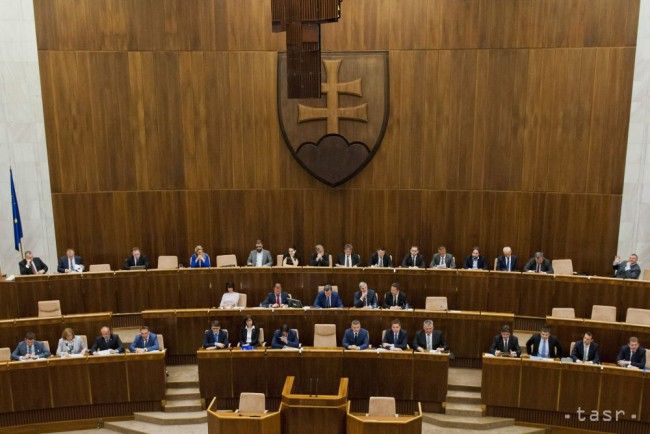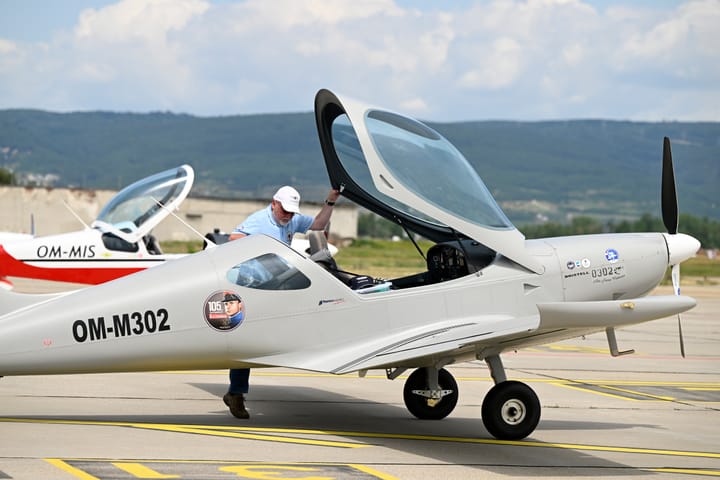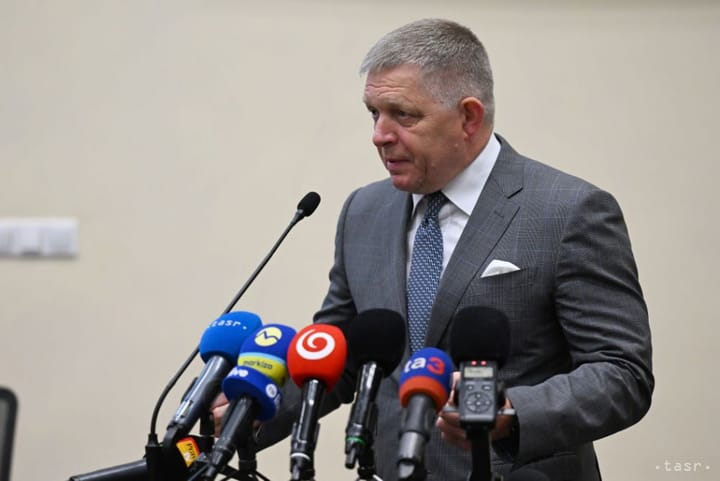No More Banners in Parliament; Time Limits on Speeches Introduced

Bratislava, October 26 (TASR) – Banners, leaflets and audio-visual presentations won’t be allowed during parliamentary sessions any more, as MPs passed an amendment to Parliament’s Rules of Procedure on Wednesday.
Moreover, there will be time limits on the speeches of legislators, parliamentary vice-chairs and ministers, while the time allotted to the president, prime minister and parliamentary chair won’t be restricted. The parliamentary chair will also be allowed to launch disciplinary proceedings against unruly MPs.
The amendment proposed by coalition MPs from Smer-SD, the Slovak National Party (SNS) and Most-Hid was adopted by 79 affirmative votes. All lawmakers present from Smer-SD, SNS, Most-Hid plus Alena Basistova (Siet/Network party) and all those who have left the Boris Kollar-We Are Family party voted in favour.
The bill was passed at its second reading with multiple changes proposed by MPs Gabor Gal, Peter Kresak (both Most-Hid) and Tibor Bernatak (SNS). Legislators will be allowed to register for a debate verbally as well as in writing and so will have the opportunity to speak twice on the same matter. However, they will have 20 minutes under written registration and ten minutes under the verbal one. The original proposal included just one option for registration.
Legislators speaking on behalf of a caucus will have 30 minutes to make their points, while those who are responsible for submitting a proposal will have unlimited time. Moreover, ministers and parliamentary vice-chairs will have only 20 minutes to speak. An exception will be accorded to them if they face a call for their dismissal.
In addition, the amendment has introduced a ban on banners, posters, leaflets and other audio-visual presentations as well as on all materials promoting one political party or another. Legislators will also be prohibited from taking photographs, making sound or audio-visual recordings or facilitating any kind of audio-visual transmission of parliamentary sessions. Only the Parliament Office and media will be allowed to do this.
With respect to the matter of ‘disturbances’ during a parliamentary session, the proposal approved isn’t as strict as the previous one. Those who interrupt a session will first be warned, and only if they continue with such behaviour will they be ousted from the assembly. However, if they still don’t comply, the chairperson won’t have to suspend the session, but will file a motion for disciplinary proceedings against the offending legislators that could lead to a fine worth several thousand euros.
The Opposition doesn’t agree with the changes. It fears that the coalition will take advantage of the new rules and use them against it. The Opposition Freedom and Solidarity (SaS) party warned that if this change is passed it would probably appeal to the Constitutional Court.



